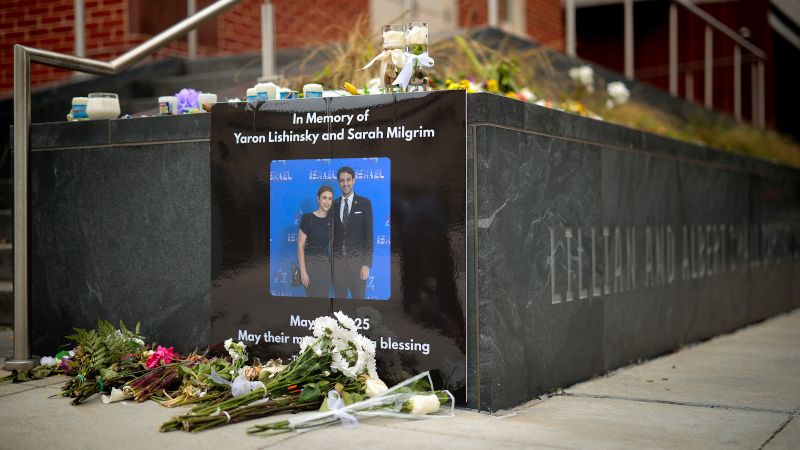The U.S. Justice Department is poised to take significant legal action this week against Elias Rodriguez, the individual suspected of fatally shooting two staff members of the Israeli Embassy in Washington, D.C. These tragic events unfolded during their departure from an event at the Capitol Jewish Museum in May, where 29-year-old Yaron Lischinsky and 27-year-old Sarah Milgrim were gunned down. Reports indicate that the department will charge Rodriguez with federal hate crimes, a move anticipated to underscore the seriousness with which the government addresses violent crime and antisemitism, particularly given the current climate surrounding hate-targeted violence in America.
Rodriguez’s indictment is set to include provisions for capital punishment; this suggests the Justice Department believes it possesses the evidence necessary to pursue the death penalty if a grand jury votes to indict. This significant aspect of the case may place it within the broader context of the Trump administration’s aggressive stance on violent crime, particularly targeting hate crimes against the Jewish community, which has recently seen a rise in incidents of violence.
Prosecutors have pledged to seek “swift and severe” penalties for Rodriguez, who is already facing multiple counts, including first-degree murder and the special offense of murdering foreign officials. As the investigation has progressed, testimonies from various individuals, including Rodriguez’s acquaintances and family members, have been presented to the grand jury in D.C., illustrating the lengthy and intricate process undertaken to gather sufficient evidence for the hate crime charges.
Rodriguez is alleged to have opened fire indiscriminately, resulting in the deaths of Lischinsky and Milgrim. Prosecutors report that he fired multiple shots while both victims were on the ground, contributing to the emotional and societal outrage surrounding the case. Furthermore, reports have indicated that prosecutors spent considerable time compiling evidence, indicating a strategic thought process focused on substantiating hate crime charges, rather than merely seeking a conviction for gun violence, which often has fewer complications in terms of legal interpretation.
Although the Justice Department’s commitment toward seeking justice reflects a robust response to these allegations, convictions for hate crimes necessitate the demonstration of an explicit bias or prejudice that motivated the criminal act. As outlined by the FBI, this requires proving that Rodriguez’s motivations did not solely stem from political sentiments towards Israel but rather a deep-seated antisemitism directed at the victims themselves. This nuanced distinction poses a challenge for prosecutors in articulating the nature of Rodriguez’s motivations.
Public discourse surrounding the case has intensified, especially in light of comments Rodriguez made immediately following the shooting. Allegations suggest he proclaimed his justification for the act by expressing sentiments aligned with a Palestinian cause. Evidence from the scene reportedly captured him shouting, “Free, free Palestine,” in video footage obtained after the shooting. Furthermore, a letter attributed to him published on social media expressed an ideological rationale for what he described as “armed action” as an acceptable form of protest, complicating the perception of his motivations and thereby influencing potential legal outcomes.
During preliminary court proceedings, former acting D.C. U.S. Attorney Jeanine Pirro indicated that they would evaluate the circumstances of the shooting as both an act of terrorism and a hate crime. This dual classification highlights the intersectional nature of the legal implications at play, emphasizing the significant ramifications that federal hate crimes invoke within the judicial system.
In summary, the anticipated indictment of Elias Rodriguez not only reflects the gravity of the situation but also highlights the complexities involved in prosecuting hate crimes, particularly within politically charged contexts. As the case moves forward in federal court and the implications of Rodriguez’s actions are scrutinized, there remains a pressing discussion surrounding the dynamics of hate crimes, their motivations, and the legal framework designed to address such grave matters in contemporary society.











